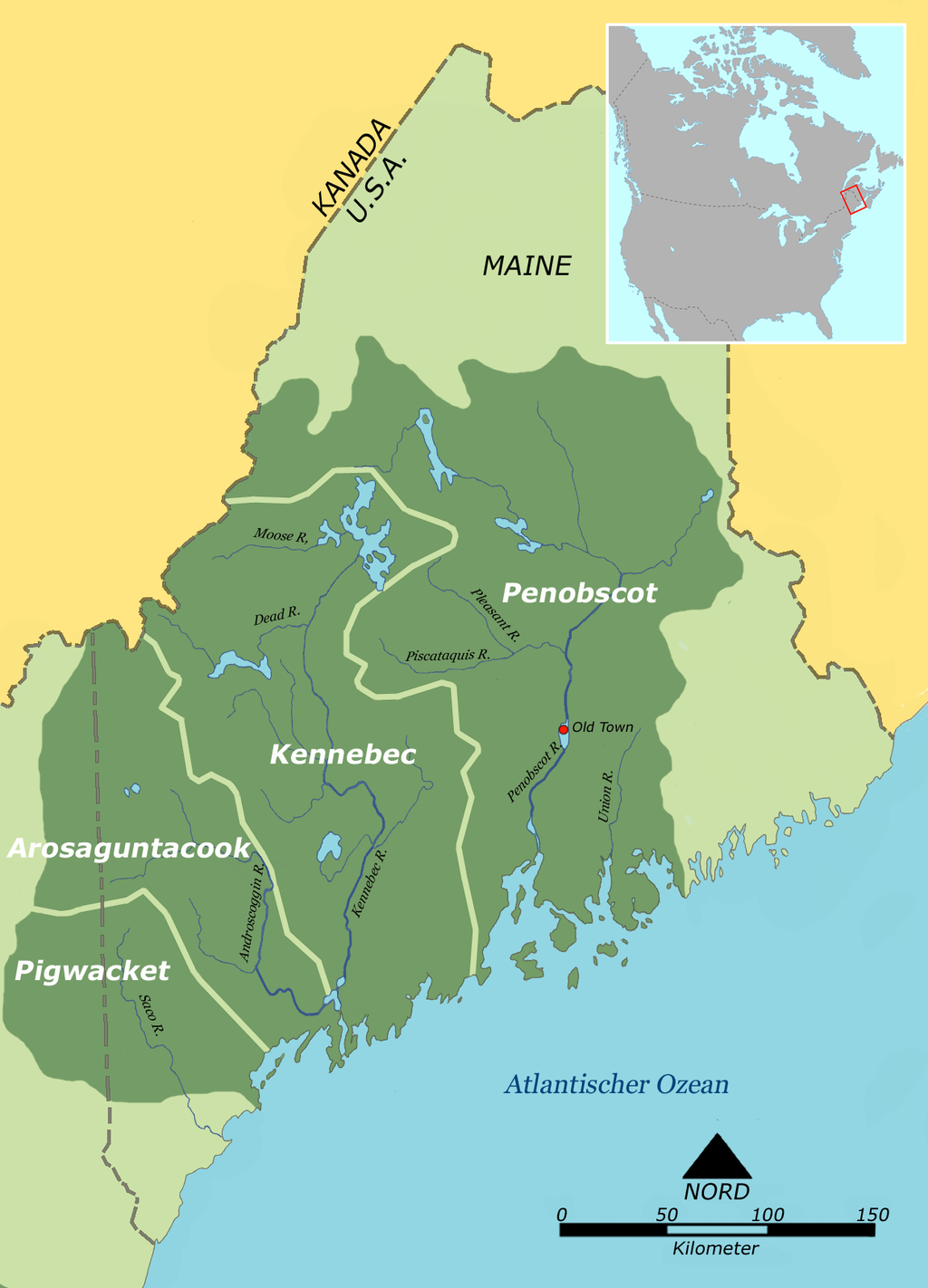Penobscot beaded moccasins.
Speech by Penobscot Nation Chief Saugama to the Maine legislature, in Augusta, Maine, on April 6, 2002:
To all who are present here today and to those who may listen on the radio or TV, I ask that your ears hear my words so that you will know what I have said. I ask for your minds to be open so that you will understand my intent. I ask that your hearts feel my commitment to bring honor to my family, my tribe and to our state, a place we all share as our home.
Woliwoni. Thank you.
It is an honor and a privilege as Saugama, the Chief of the Penobscot Nation, to be here on this historic day, addressing the joint session of the 120th Legislature.
Woliwoni. Thank you.
Today symbolizes what I truly believe to be a new era in Tribal/State relations. Relationships are based on communication. Today we have the opportunity for direct communication. Perhaps, today this can be the start of our greatest days before us.
My grandfather was a pack-basket maker, a river guide, and a hunter and worked on the Penobscot log drives. My grandmother, along with raising a large family, tended a garden, and braided sweet grass for the fancy-basket makers. In my youth, I was fortunate enough to have spent many hours with them, hearing the stories of the old days. From my grandparents, as well the other tribal elders, I learned my culture. Though these elders have joined our ancestors, their values, and their passion for preserving our traditions live on in the pride of my people.
I am thankful for my mother, a proud Penobscot woman. In her 60-plus years of living on the Penobscot River, she has witnessed many changes for our people. She faced the bitter winds of winter while walking across the ice, and paddled across the quick spring currents to go to and from school. She drove her first car across the infamous one-lane bridge. My mother worked as hard as many in the Old Town shoe factories and then became a dedicated Penobscot Nation's Tribal Clerk of 19 years. She has always supported my endeavors, even standing in the cold November rains at my High School football games. (Incidentally, she could never understand why 22 young men would fight over one funny shaped small ball.) She always strived to make a better life for her family and her people. Though she could not be here today due a slight heart attack, she will be watching on public TV. Please join me in honoring a proud Penobscot woman, Lorraine Dana. Neyan Penawepskewi. I am Penobscot.
Over the last two years, our people and our concerns for the environment, especially the rivers in the State of Maine have been in the news. We have a special relationship with the Penobscot River. We all live along the river. However, my people not only live on the river, we are actually a part of the river, living on Indian Island. The river is ingrained in our history, our culture, and our values.
It was once told to me by an elder that, before there was a river there were streams, from the upland into the valley. But one day, the water in the valley became a trickle, and it disappeared, and the people grew thirsty. A young hunter went to find out what had happened. He entered the forest and walked for days until he came to the place where the streams converged, and there he saw Kci Cetwalis, a gigantic frog. The frog grew bigger and bigger as it lapped up the little streams. The people sent for Gluskabe, our hero. Gluskabe followed the trail and when he came to the frog he called out, "There are others who are thirsty too. You must learn to share." "I won't stop," croaked Kci Cetwalis the frog, "Because I am the biggest and most powerful, I can do what I want."
Gluskabe pulled up a giant white pine, and lifting it high over his head he brought it down, striking the frog on the back. Kci Cetwalis the frog burst into a thousand pieces. The water shot up into the air and landed in the deep furrow in the ground the tree had made, and the water began to flow. And that is how the Penobscot River came to be.
For centuries our history and culture have been shaped by our direct daily interaction with this powerful moving force of nature. For this reason, my people have always viewed the regulation and protection of our natural resources as our obligation, our stewardship to Mother Earth. We still use the river as a source of life. Our traditions are tied into this powerful free-flowing source. Though Kevlar and Rogallex have all but replaced birch bark canoes, we still use the waterways of the Penobscot to journey north to our sacred monument, Katahdin. Katahdin is the center to our spirituality. We still gather plants from the river's sediments and use them in our medicines. We still take our children upriver to enjoy the traditions of our people. We pray for the return of the salmon so our subsistence rights can be realized.
Our stewardship and protection of the river comes naturally to me and my people. We have a deal; Mother Earth provides for us and we protect her. This traditional value goes beyond laws and regulations. This is a deal that transcends governments, profits and the perception of power. And this is a relationship our people will never break.
Our rivers, our waters are not just a resource, they are us. Our waters are sacred, not just to the Penobscot, not just to the Passamaquoddy, Maliseets, or Mic macs, but to all the people of Maine. Enforcement of the Clean Water Act is absolute and must be addressed. The daily lives and health of people who live along the Penobscot River from Millinocket to Searsport must be protected. We have the Governor's pledge to give the Tribes a substantial and useful role in the process of waste-water discharge permits affecting our reservation. On behalf of the Penobscot Nation I commend the Governor for that. I pledge to work on a government-to-government basis with Attorney General Steven Rowe to find a solution.
It is not enough to have high standards for the cleanliness of the water and the protection of all those who rely upon those waters, including the people of my tribe, the people of Maine, the fish and turtles that live within the river and eagles who find their sustenance within those fish. We are al1 connected and to protect this connection for now and forever. It is not enough to write high standards. They must be enforced. Our lives are at stake, and our environment is at stake. The reputation of the State of Maine is at stake, and as leaders we all have an obligation to protect our most precious resource.
Now I'd like to talk about sovereignty and the Settlement Act. These things are important to us, but need not be scary for you. The Penobscot Nation as a tribe and a government predates the State, and the United States. The State of Maine from 1820 on did recognize us as a tribe, but did not recognize our Federal Indian Rights. This changed in 1975 when Federal Judge Edward Gignoux ruled that the Penobscot and Passamaquoddy Nations have the same sovereign status under the Constitution and laws of the United States as tribes in other parts of the country.
In 1980 we settled our land claims after four long and often bitter years of negotiation. The settlement confirmed our sovereignty and our protection as tribes under Federal Law. The plan of the settlement was that tribes and the State would work out their destiny together. The Federal government gave its advance blessing to any agreements worked out between the tribes and the State.
We haven't done this enough. Too often we have been locked in the ancient struggle of the land claim. We need to find ways to work together as partners. We need to creatively use the tools available to us for the benefit of all. We need to ensure Maine tribes are never again deprived of benefits that other tribes enjoy. We can do this within the context of our unique relationship.
The very essence of tribal sovereignty is the ability to be self-governing for the protection of the health, safety and welfare of our people. We are a distinct people with a unique history. The Penobscots are an Indian people. For thousands of years, the bones of our ancestors have been laid to rest along the shores of the rivers and the ocean. We will continue to safeguard these rights to preserve our future. We are proud of our history and we are hopeful for our future. We, the Penobscot people, the Penobscot Nation are still here, and we will continue to be here for now, and forever. Neyan Penawepskewi. I am Penobscot.
Woliwani. I thank you.












